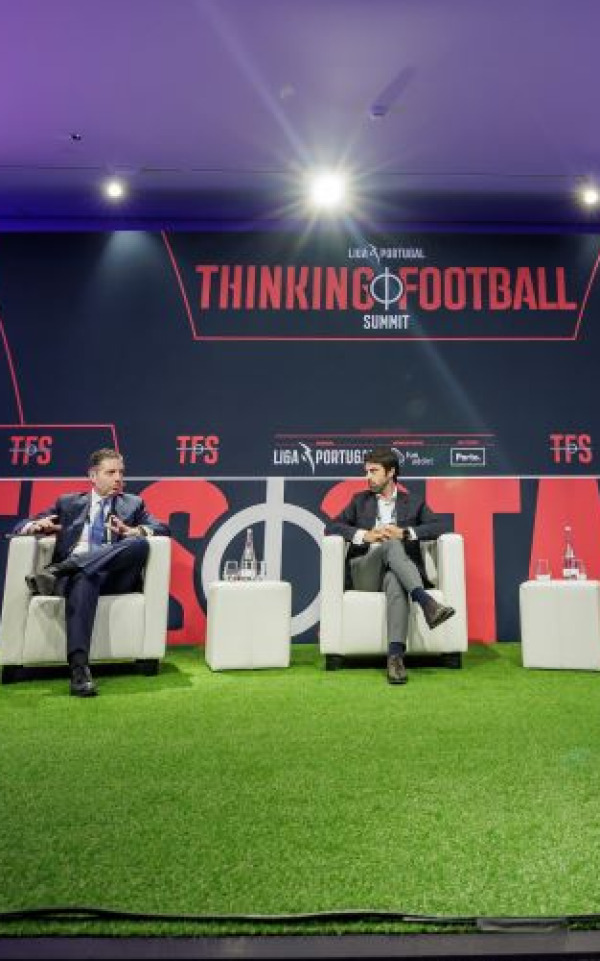Context costs in professional football: ‘We have to create tools to stay competitive’

Context costs in professional football: ‘We have to create tools to stay competitive’
The various costs associated with the professional football industry in Portugal have been a topic of discussion in recent years, such as the excessive tax burden or the VAT associated with ticket prices. In a panel moderated by Miguel Farinha, Country Managing Partner at EY, Portuguese Cluster, Cláudio Couto (SC Braga), Francisco Salgado Zenha (Sporting CP), José Pereira da Costa (FC Porto) and Nuno Catarino (SL Benfica) discussed the way forward to reduce these costs that have hampered Portuguese clubs' ability to compete on the international stage.
The Braga representative began by contextualising the difficulties faced by Portuguese clubs. ‘There are some contextual costs that can be minimised to increase the competitiveness of Portuguese football. The issue of VAT, which was increased to 23 per cent a few years ago and has not been reduced, unlike all other entertainment. We pay very high bills for work accident insurance, particularly due to the minimum disability required for the athlete to be entitled to compensation,’ he said, in a line of thought shared by Francisco Salgado Zenha:
‘We have huge challenges ahead of us, because we compete with the world's biggest powers in the UEFA rankings. Insurance is a clear case in point and, in the case of Sporting CP, we have a cost of 5 million a year, which is a problem we have to solve. The tax burden is absurd, so we have to create tools, with the support of the political class, to remain competitive.’
José Pereira da Costa shared an exercise in aligning context costs with the European average. ‘In the case of FC Porto, it could represent a reduction of around four to five per cent in the margin on operating revenues, excluding revenues from player sales. For total revenues of around 160 million, we could reduce costs by around seven to eight million, which is a very significant amount,’ he emphasised, and Nuno Catarino left some solutions to mitigate this issue:
‘We have to improve the profitability of the product. The increase in stadium attendances is excellent, and SL Benfica is fortunate to have a waiting list of 14,000 people to buy the annual seat. I think the clubs have to co-operate much more with each other, especially in terms of innovation, so that the spectacle is better and we can avoid a potential decline in Portuguese football.’
News
Historic: Women's football clubs surpass €100 Million in revenue
For the first time ever, the combined revenue of top women’s football clubs in key markets has exceeded ...
How to succeed in the Sports Industry? Four tips from Rafael Nadal
Rafael Nadal is renowned for his excellence, determination, and relentless pursuit of victory. With 22 Grand Slam ...
Al-Nassr signs Esports player for record-breaking fee
João Afonso, world champion in FIFA and EA Sports FC, known as "Jafonso," has made history with the most ...
Is Netflix prepared to stream major sporting events? Insights from the Jake Paul vs. Mike Tyson fight
The live broadcast of the Jake Paul vs. Mike Tyson boxing match on Netflix marked a significant step for the platform, ...
European Leagues and FIFPro vs. FIFA: Lawyer Gonçalo Almeida explains the complaint to the European Commission
The European Leagues, chaired by Pedro Proença, along with FIFPro, has filed a complaint with the European ...
